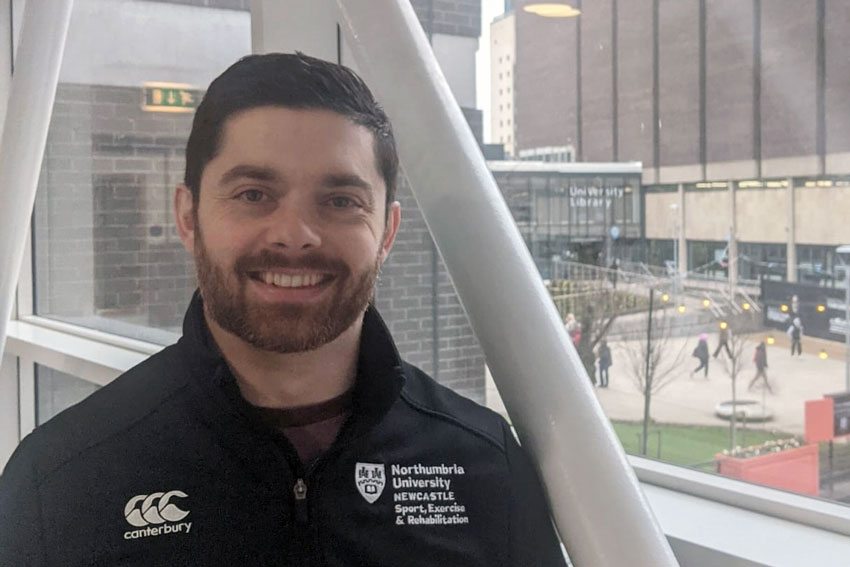
Alumnus leads international effort to advocate for cross-education in rehabilitation
Tapping into global expertise and diverse perspectives is key for bringing about innovative solutions to difficult problems.
By GEN CLARKThis is a strategy exemplified by Dr. Justin Andrushko and 20 other experts from around the world recommending the use of cross-education as a method to enhance rehabilitation. It is a strategy that involves resistance training a limb on one side of the body to enhance muscle strength in the same muscle group in the opposing limb.
An alumnus of the College of Kinesiology (MSc '17, PhD '21), Justin worked with supervisor and cross-education expert Dr. Jon Farthing during his graduate studies. Since then, Andrushko has expanded his expertise by collaborating with leading researchers in neurorehabilitation, neurophysiology, and brain imaging. Andrushko was awarded two fellowships from the Canadian Institutes of Health Research and Michael Smith Foundation Health Research BC to work as a postdoctoral fellow at the University of British Columbia with Dr. Lara Boyd, a world leading stroke rehabilitation scientist, and held visiting researcher appointments at Deakin University in Australia, the University of Oxford in the United Kingdom, and Memorial University of Newfoundland.
Last fall, Andrushko was appointed Assistant Professor and Vice Chancellor Fellow in the Department of Sport, Exercise and Rehabilitation within the Faculty of Health and Life Sciences at Northumbria University in the United Kingdom, where his research centres on improving health outcomes for individuals who have experienced orthopedic or neurological injuries.
In a recent editorial, in the British Journal of Sports Medicine, authored by Andrushko, Farthing, and other experts from across North America, Europe, Western Asia, and Australia, the group explains that despite the limited literature, cross-education can be used as a low-risk high-reward early intervention approach for preventing muscle atrophy and strength loss particularly following knee reconstruction surgery. The neural mechanisms behind cross-education are not fully understood and further clinical studies looking into its efficacy are needed.
Nevertheless, the group confers that conventional rehabilitation approaches that largely involve disuse and the avoidance of strength training in the early weeks post-surgery are short-sighted due to the rapid decline in muscle strength and global deconditioning. Whereas incorporating cross-education in the early phases of rehabilitation can effectively preserve muscle strength in the injured limb, facilitating better recovery post-injury.
“Cross-education is not widely implemented clinically, largely due to a concern that it will exacerbate limb asymmetry, which is a common clinical outcome therapists focus on. However, in our editorial we make the case that a focus on limb symmetry in the early phases of rehabilitation is short-sighted given an abundance of literature demonstrating that muscle strength is actually a more important clinical marker than limb symmetry for recovery. With that in mind, cross-education can effectively offset the losses in muscle strength that commonly occur following an injury, giving individuals a better foundation to build on once the injured limb is physically ready to begin focused resistance training,” said Andrushko.
“However, he adds, as the injured limb heals, the focus of rehabilitation can, and likely should shift away from strength training the uninjured limb towards maximizing strength and achieving limb symmetry in the injured limb in these later phases.”
The authors call for a broader conversation within the medical and rehabilitation communities about incorporating cross-education into rehabilitation protocols. Andrushko will continue to voice this message with researchers and practitioners at the European College of Sport Science in Glasgow Scotland later this year in an invited symposium talk titled Accelerating recovery post-ACLR with early-stage eccentric cross-education.
Article originally published at https://kinesiology.usask.ca.

